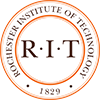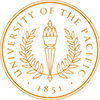Germany is one of the countries in Europe that is popular among international students from various parts of the world. This is due to Germany’s higher education system, which is one of the best in the world. When it comes to research excellence, especially in the sciences, Germany is a leading country. In fact, the country’s research organizations experience stable funding from the state through an annual budget increase.
Compared with other countries, especially in Europe, Germany does not lag. In fact, it is one of the best. In 2018, for example, Germany ranked as the most attractive country to study for international students among EU countries. According to the Study.EU, the governing body of that ranking, Germany’s world-class institutions, combined with Germany’s free tuition fees, has made it the best place to study for many international students in Europe.
If you’ve already decided to study in Germany or are still planning to, read on to learn more about its higher education system.
Germany’s Administrative Bodies in Education
Germany has a federal system of government that allows its member states to practice a high level of autonomy when it comes to creating policies in education. However, the Federal Ministry of Education and Research takes the role of awarding scholarships and regulating non-school vocational training, continuing education, and international exchange in education and science.
Types of Higher Education Institutions (HEIs)
Germany has a variety of institutions that international students can choose from. In fact, there are 400 state-accredited institutions across the country.
Germany’s biggest types of HEIs include private and public universities, universities for applied sciences, and colleges of art, film, and music.
Universities
Universities in Germany offer the widest range of courses for students. Universities teach their students both theoretical and methodological practices but focus more on the former. Aside from those, universities have a strong research-oriented environment. Students can study for a bachelor’s degree, master’s degree, and even doctorate in universities. Most often, taking a doctorate in Applied Science universities is not possible.
Universities of Applied Sciences
Whereas universities focus more on imparting theoretical knowledge to their students, universities of applied sciences focus more on practice-oriented courses. Courses in universities of applied sciences prepare their students through practical training to prepare them for professional life. In most universities of applied sciences, the focus is on various applied science fields such as medicine, technology, economics, social work, etc.
Colleges of Art, Film, and Music
Before students can enter a college of art, film, and music, they must first demonstrate a certain proficiency in a specific talent that they need to do during their entrance exam. In this type of HEI, students focus on studying subjects related to art, such as music, visual arts, dance, film, industrial and fashion design, and so on.
Degrees Offered
Just like other institutions worldwide, German HEIs offer the following degrees: bachelor’s degree, master’s degree, doctorate, and degrees leading to a state exam. Most HEIs in Germany offer bachelor’s and master’s degrees. Doctorate degrees, however, are mostly taken in universities only.
Germany’s higher education system is one of the best in the world, and a favorite among many international students. To learn more about studying in Germany, check out our articles on MSM Unify.















































